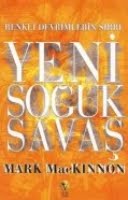
Phnom Penh: At first, I was going to rush outside with everyone else in the courtroom, to gulp some fresh air and a plastic cup of water after a morning of listening to prosecutor William Smith list off the crimes committed by Kaing Guek Eav, the murderous Khmer Rouge jailor better known as Comrade Duch.
But then I remembered that I had surreptitiously stuffed my Blackberry in my blazer pocket on the way in to the court (mobile phones aren't allowed in court but I had been reluctant to hand it over to an unknown fate with the security guards outside). I had snuck it through security once, but trying again might be pushing my luck. I decided to stretch my legs by wandering around the courtroom instead.
As the courtroom rapidly emptied. I realized there was someone else doing the same thing: Comrade Duch.
I couldn't help but stare. Here was the man who stands accused of - and has confessed to an indirect role in - the deaths of more than 12,000 people while he ran Phnom Penh's notorious S-21 torture and interrogation centre.
Just two days before, I had visited S-21 which, other than the gallows and the graves that stand in front of it, still looks from the outside like the high school it was before the Khmer Rouge arrived in 1975. It's a haunted place, filled with room after room of black-and-white photographs of those who spent their final days there.
Some stare at the camera with anger or defiance, others with fear plain on their faces. But most wear no expression at all, as if they've had all emotion beaten out of them. They look as though they no longer cared whether they lived or died.
Watching Duch pace around the courtroom - separated from the audience area where I stood by a pane of bulletproof glass to prevent revenge attacks - it was difficult to imagine this small, ordinary looking 67-year-old as the same man who oversaw a place where men were forced to eat human feces, women were raped and babies were bashed to death against trees.
Hands thrust deep in his pockets as he paced, perhaps thinking about the final statement and apology he would deliver to the court in a few minutes time, he looked like what he should have been: a retired mathematics teacher. Someone's grandfather. With nearly parted grey hair and a crisp white shirt, he looked exactly like a man I had seen outside Phnom Penh's disused train station earlier that morning.
As I pondered this, Duch turned and faced the almost-empty auditorium. His slightly watery eyes scanned the seats as if looking for someone. Eventually, they met mine.
A moment passed quietly as I uncomfortably returned his gaze. I don't know what he was searching for - a smile? a wave? - but I think I was hoping to catch a glimpse of the inner monster, the thing that separated him from the rest of us and made him capable of doing such horrible things. Or maybe a hint that he is, as he says, tormented by "excruciating" remorse over what he'd done.
In Duch's blank eyes, I saw neither. Just an old man in a cage looking out curiously at those looking in.
The courtroom started to fill back up again. Duch turned to consult with his lawyers.
A few minutes later, he stood and told the court again how sorry he was.
I had no idea whether to believe him.





